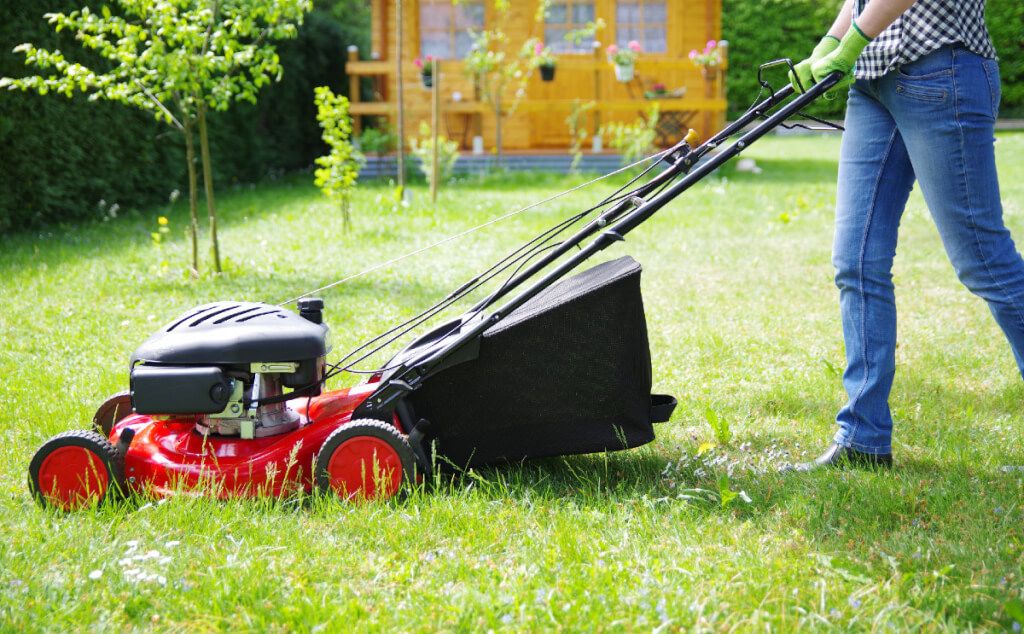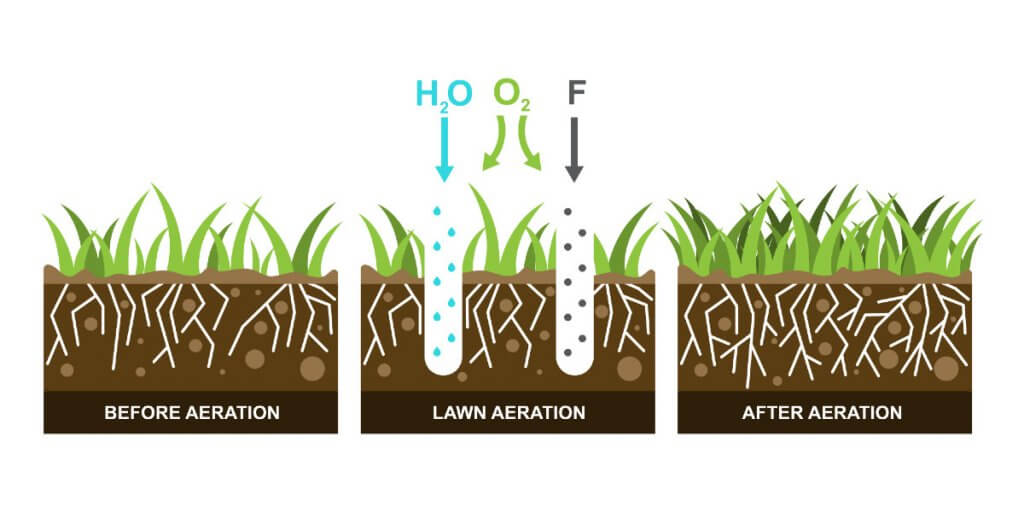Advertising Disclosure
Lawn care tips for when you’re on a tight budget

Whether you’re a new homeowner or you’ve owned your house for years, you know lawn care requires a lot of time, money and effort. The maintenance is full of ups and downs, more so if you live in an area where there are distinct seasonal changes. Maintaining your lawn to keep its vibrant green color can become stressful. It involves not only watering, but the cost of equipment, pesticides and fertilizer, which add up quickly. Caring for your lawn on a budget may seem overwhelming. But we have some smart lawn care tips to help you out.
Water your lawn only when necessary
The easiest way to cut back is to control how often you water your lawn. Most people find themselves panicking once their grass starts turning brown. When your grass turns brown, it doesn’t always mean that it’s dead. The winter and summer seasons are times where grass will become dormant due to extreme weather conditions. With the heat and drought experienced during the summer season, grass can stay dormant for three to four weeks . If you are concerned about the state of your lawn, feel free to water it.
Keeping your grass tall
Everyone loves the look of a well-kept lawn, but you may find that you are mowing your lawn too much. The optimal height of lawn grass depends on the season. During the cooler seasons, the recommendation is to keep grass height around 2-and-a-half inches. However, you should keep you grass at around 3 inches during the warmer seasons. Essentially, when mowing your lawn, you should be removing only the top one-third of the grass blade. By keeping the grass taller, it creates deeper roots and more shade to the soil. Both result in less watering needed for your lawn. The biggest perk of mowing tall grass is that it prevents weeds from growing. Since the grass will be taller than the weeds, it will block their ability to receive sunlight, causing them to die off without the use of any toxic chemicals.
Aerating your lawn
It’s often overlooked, but one of the most critical of lawn care tips is to aerate your lawn properly. The process of aerating your lawn involves mixing the soil to release stored water, nutrients and air. Aerating is an option if you notice a lot of foot traffic, if the soil is heavy in clay content, or is suffering from water pooling or running off. You will want to aerate your soil only once a year around the fall when weeds are less of a problem . There are tools you can buy for around $100 to aerate your lawn. If you want more physical exercise, you can purchase aerator shoes like the Ohuhu Lawn Aerator Shoes. Aerator shoes typically cost $20-$40 and attach to your regular shoes with straps. By wearing them, you can walk around and aerate your lawn.
Fertilizing your lawn
For proper growth, your grass needs nitrogen. You want to fertilize your lawn as this process adds nitrogen and other nutrients to the soil that may be lacking. The type of fertilizer you use is up to your personal preferences and what your lawn needs. Ensure that the fertilizer is distributed by using either a spreader or sprinkling it by hand. You can easily make fertilizer by combining one bag of compost with manure . The best time to fertilize your lawn depends on your climate and the type of grass, though typically late spring and early summer are best, as there tends to be more rain during those seasons, making it easier for the lawn to absorb the added nutrients.
Maintain your lawn care equipment
If you already own lawn care equipment such as a lawnmower or sprinkler system, it’s imperative to maintain the items if you want them to last without needing expensive replacement. You don’t want to have to shell out more money to replace those items every year. So if it’s not in use, store it away. Don’t leave anything lying around the lawn that end up underneath the lawnmower. Remember to clean your lawn care gear regularly, and check the functioning of any electrical equipment.
Use pesticides (at your own discretion)
Using pesticides for controlling problems that your lawn may face can be effective, but they can also be harmful to the health of your lawn, the environment and yourself. Not to mention that these chemicals are often expensive. Some people suggest making a homemade version using water and dish soap to create a less toxic pesticide. “Do it yourself” is always one of the best lawn care tips, especially when it’s both safer and easier on your wallet. So if you want a natural way to fight off pests, try mixing an essential oil spray using any combination of lavender, peppermint, rosemary, basil, spearmint, thyme and tea tree oil.






